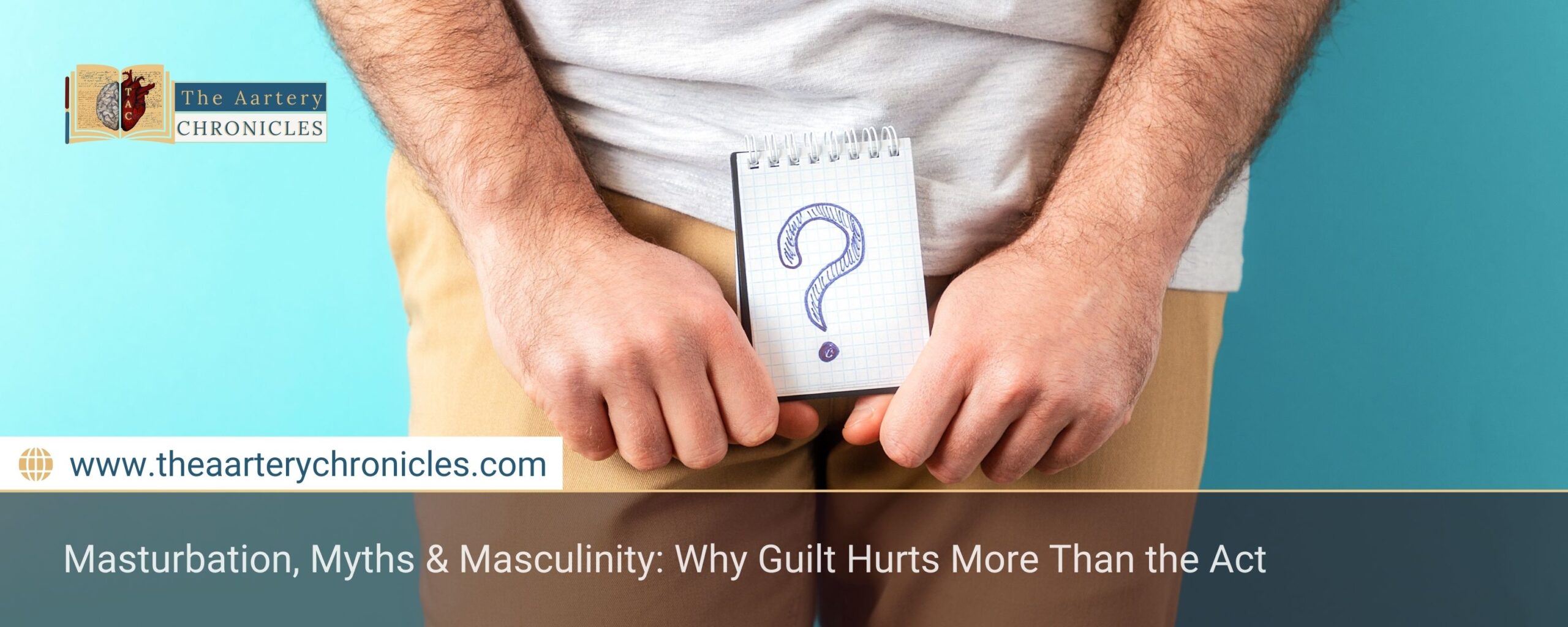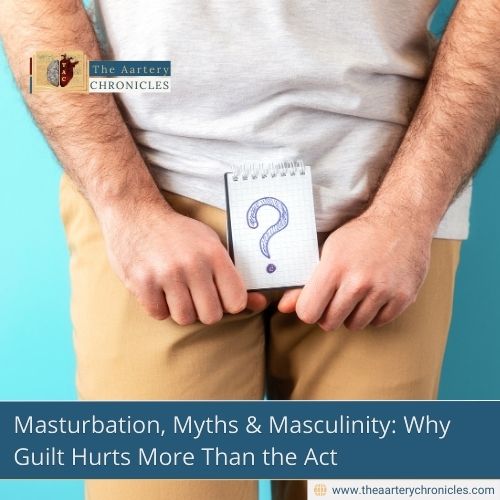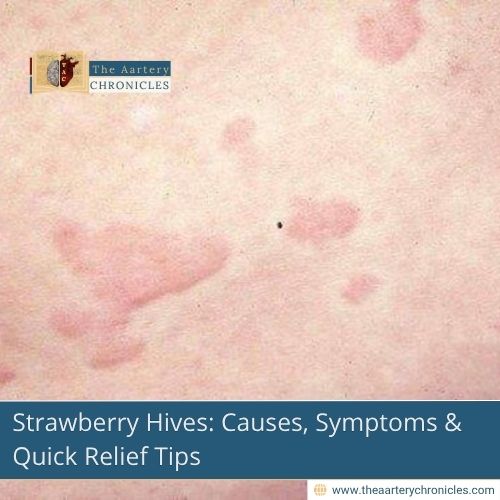

Masturbation, Myths & Masculinity: Why Guilt Hurts More Than the Act
Summary: Masturbation is a common human behavior often clouded by myths and silence. This article explores scientific facts, cultural perceptions, and the impact of guilt on mental health and masculinity.
Introduction
It usually begins as a quiet discovery, private, curious, even exciting. For most adolescents, masturbation is a normal part of growing up. But somewhere between teenage exploration and adult shame, something shifts. A deeply human behavior becomes taboo, loaded with guilt, fear, and misinformation.
In Indian society, where sex education is minimal and silence is the norm, conversations around masturbation are often steeped in pseudoscience and cultural judgment. For many, especially young men, this silence becomes a breeding ground for anxiety, performance issues, and even somatic symptoms like fatigue or weakness. It is not the act of masturbation that is harmful, but the mental burden we attach to it.
The Physiology: What’s Really Happening
Masturbation is a common and healthy sexual behaviour observed across all age groups and is not linked to any physical harm or long-term negative outcomes. MedlinePlus, from the U.S. National Library of Medicine, describes masturbation as a natural, generally harmless behavior¹. It is known to release dopamine and endorphins, chemicals associated with pleasure, relief, and relaxation.
There is no scientific evidence that masturbation leads to physical weakness, infertility, hair loss, or any form of irreversible damage. According to the UK’s National Health Service (NHS), it does not cause blindness, erectile dysfunction, or harm sperm quality or production². In fact, it may support healthy sexual development and reduce stress.
Understanding Where the Guilt Begins
The guilt surrounding masturbation has little to do with biology and everything to do with social conditioning. In many Indian households, sexuality is either ignored or actively shamed. Masturbation, especially among boys, becomes a secret activity burdened with fear-based myths. These include beliefs that semen is finite, that “losing” it weakens the body, or that desire itself is sinful.
Such ideas are reinforced by peers, religious authorities, and outdated health messages. The result is often intense guilt, anxiety, and rumination over what is otherwise a normal bodily function.
In some cases, this develops into a culture-bound condition known as Dhat Syndrome, where individuals (typically men) experience anxiety, fatigue, and somatic symptoms such as weakness or back pain, attributed to semen loss⁴. Semen is continuously produced by the body, and its release through masturbation has no harmful effect on health. Yet the psychological distress in Dhat Syndrome is very real, rooted in fear, misinformation, and internalized shame.
Mental Health Impacts: When Guilt Hurts More Than the Act
Persistent guilt around masturbation can cause more harm than the act itself. It often manifests as:
Performance anxiety in future sexual encounters
Obsessive rumination about controlling or stopping masturbation
Somatic complaints such as fatigue, brain fog, or weakness
Conflicts around masculinity, with feelings of being “less manly” or “undisciplined”
Shame-induced withdrawal from relationships or intimacy
These symptoms are frequently observed in clinical settings, especially among young men who lack safe spaces to explore or understand their sexuality. In some cases, they may self-diagnose as having “porn addiction” or believe they are suffering from a physical disorder, when in reality the root cause is psychological distress related to unresolved shame.
A 2005 study of Indian men found that those with Dhat Syndrome had significantly higher levels of anxiety, health fears, and somatisation compared to healthy controls⁵.
And Yes, It Affects Women Too
While male masturbation is at least acknowledged, albeit with stigma, female masturbation is often invisible. Many Indian women grow up without access to accurate information about their own bodies. Masturbation is rarely discussed, let alone normalised. This leads to deep internal conflicts when women experience desire or explore their own pleasure.
Women may suppress their curiosity, avoid conversations around sexuality, or feel disconnected from their own sexual identities. Over time, this can impact intimacy, body image, and relationship satisfaction.

What Does Healthy Masturbation Look Like?
Healthy masturbation is about balance and mindset rather than frequency. It should feel emotionally neutral or pleasurable, not compulsive, secretive, or burdened with shame. Some people engage in it daily, others occasionally, and some not at all. All of these are valid.
If you are concerned about your relationship with masturbation, reflect on questions such as:
Am I using it to avoid emotions I am not ready to face?
Is it affecting my daily routine, relationships, or sleep?
Do I feel extreme guilt or self hatred afterward?
If the answer to any of these is yes, the issue may not lie in the behavior itself but in the emotional meaning you have attached to it. Therapy or professional counseling can help unpack this with compassion and clarity.
Common Myths, and What Science Says
Myth | Scientific Reality |
Masturbation causes weakness | No, semen loss does not weaken the body⁴ |
It reduces sperm count permanently | The body produces sperm continuously² |
It’s addictive | Only problematic when it becomes compulsive⁶ |
It affects memory, eyesight, or testosterone | No scientific evidence supports these claims¹ |
Let us be clear. Masturbation is not morally wrong and it is not biologically harmful. What truly causes harm is the silence, misinformation, and shame that surround it.
Reclaiming Sexual Health as Mental Health
Sexuality is a natural part of being human. When it is surrounded by secrecy or fear, it can erode mental well-being, leading to anxiety, confusion, and even depression.
Acknowledging masturbation as a normal behavior is a step toward emotional literacy. It allows individuals to relate to their bodies without fear, understand their desires without judgment, and seek help when needed without shame.
Whether you are a teenager figuring things out, a parent unsure of what to say, or an adult trying to unlearn old beliefs, remember this: masturbation is not a diagnosis, guilt is not a virtue, and healing often begins with honest, informed conversations.
Final Thoughts
As psychiatrists and health educators, we need to do better than euphemisms and fear. It is time to replace whisper networks with real information and respectful dialogue. Because the real harm is not in what we are doing behind closed doors, but in how alone, ashamed, and broken we feel afterward.
If you are struggling with guilt, confusion, or distress around this topic, know that you are not alone, and you are not abnormal. You are human.
References:
- MedlinePlus. (2021). Masturbation – sexual health. U.S. National Library of Medicine. https://medlineplus.gov/ency/article/001956.htm
- NHS. (2022). Is masturbating unhealthy?. National Health Service, UK. https://www.nhs.uk/common-health-questions/sexual-health/is-masturbating-unhealthy/
- Planned Parenthood. (n.d.). What is masturbation? https://www.plannedparenthood.org/learn/sex-pleasure-and-sexual-dysfunction/masturbation
- Pervez, S. (2022). Dhat syndrome: A culture-bound psychosomatic disorder. NCBI. https://pubmed.ncbi.nlm.nih.gov/36425228/
- Chadda, R.K., & Ahuja, N. (2005). Dhat syndrome: A sex-related anxiety disorder of the Indian subcontinent. NCBI. https://pubmed.ncbi.nlm.nih.gov/15882769/
- National Institute of Mental Health. (2022). Understanding compulsive sexual behavior. https://www.nimh.nih.gov/health/topics/obsessive-compulsive-disorder-ocd
Dr Anuradha Rathod
Dr. Anuradha Rathod is a psychiatrist focused on women’s mental health, PMS, PMDD, perinatal psychiatry, anxiety & holistic lifestyle care.
All Posts- Dr Anuradha Rathod
- Medicine and Diseases,Sexual Health
- 20 August 2025
- 11:00








